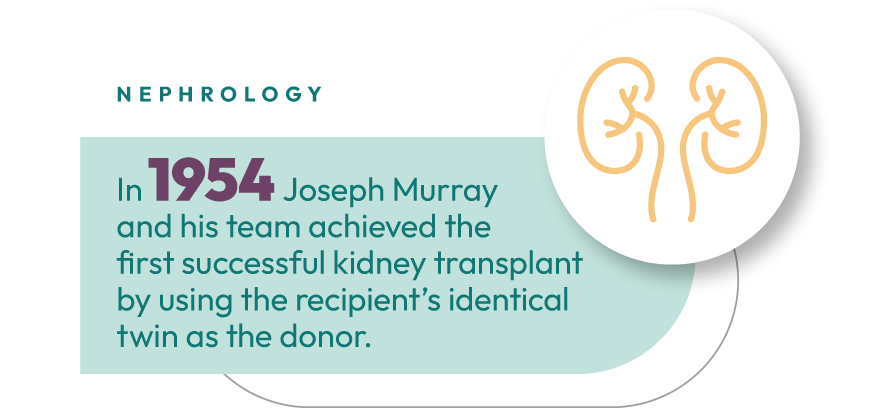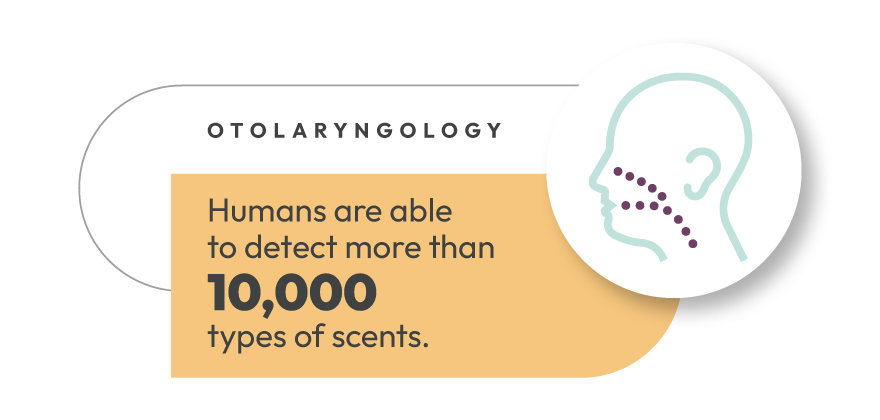This article was originally published on May 21, 2020 and has since been updated.
Plenty of medical students have questions when they’re first starting out — like what are all of the physician subspecialties, and what the most common doctor specialty is in your field? But with so many paths to choose from, and so many stops along the way, there might be times you need to know even more. You might have already started wondering the following questions:
- Which field in medical is best for someone who likes working alone?
- What is the most common doctor specialty for physicians interested in working outside of a clinical setting?
- What speciality is suited for physicians wanting to travel abroad?
- Which field of medicine is best for working remotely, and what is the most respected specialty in medicine overall?
You should choose your medical speciality depending on your career aspirations and the kind of lifestyle you’ve envisioned for yourself. You should also focus on your strengths, your priorities, the areas of medicine you enjoy, and the types of patients you’d like to see.
So what are all of the physician specialties? To help you narrow it down, below is our ultimate list of medical doctor specialties along with the length of residence training they require:.
| Specialty or Subspecialty | Years of Residency |
| Anatomical Pathology | 5 |
| Anesthesiology | 5 |
| Cardiology | 6-7 |
| Cardiovascular/Thoracic Surgery | 6 |
| Clinical Immunology/Allergy | 2 |
| Critical Care Medicine | 2-5 |
| Dermatology | 5 |
| Diagnostic Radiology | 5 |
| Emergency Medicine | 5 |
| Endocrinology and Metabolism | 6 |
| Family Medicine | 2 |
| Gastroenterology | 6 |
| General Internal Medicine | 4 |
| General Surgery | 5 |
| General/Clinical Pathology | 5 |
| Geriatric Medicine | 6 |
| Hematology | 6 |
| Medical Biochemistry | 5 |
| Medical Genetics | 5 |
| Medical Microbiology and Infectious Diseases | 5 |
| Medical Oncology | 6 |
| Nephrology | 6 |
| Neurology | 6 |
| Neurosurgery | 6 |
| Nuclear Medicine | 5 |
| Obstetrics/Gynecology | 5 |
| Occupational Medicine | 4-5 |
| Ophthalmology | 5 |
| Orthopedic Surgery | 5 |
| Otolaryngology | 5 |
| Pediatrics | 4 |
| Physical Medicine and Rehabilitation (PM & R) | 5 |
| Plastic Surgery | 5 |
| Psychiatry | 5 |
| Public Health and Preventive Medicine (PhPm) | 5 |
| Radiation Oncology | 5 |
| Respirology | 5 |
| Rheumatology | 6 |
| Urology | 5 |
1. Anatomical Pathology
Anatomical pathology is one of those medical doctor specialties that study the morphologic aspects of a disease. An anatomical pathologist’s key specialization is to diagnose diseased tissue and investigate the mechanisms and development of the disease. They do this by examining the tissues removed by needle aspiration, surgical procedures, or autopsy. Anatomical is one of the better medical specialties for doctors who like working alone, in a lab setting, or in a more academic environment.
To become certified in this specialty, you need to do 5 years of approved residency training post completion of medical school. This involves 1 year of basic clinical training, 3 years of approved residency training in anatomical pathology, and another year of approved residency.
2. Anesthesiology
Anesthesiology (anesthesia) is a diversified specialty where physicians are required to tactically merge their knowledge of physiology and pharmacy and use their technical skills to provide pain management, critical care, and perioperative care. To be able to excel in this specialty, you needs to have certain strengths such as the ability to perform under pressure, think quickly in stressful situations, and use your hands to work in a team environment. This specialty does not offer an opportunity to establish a long-term patient-physician relationship.
To become certified in anesthesiology, you need to do 5 years of Royal College-approved residency training post completion of medical school. This involves 1 year of basic clinical training and 4 years of Royal College-approved training. However, anesthesiology is one of the higher paying medical specialties, and works well for physicians who prefer less interaction with patients.
Related sub-specialties:
- Pain management
- Sleep medicine
- Critical care medicine
- Hospice and palliative care
- Pediatric anesthesiology
- Neurocritical care
3. Cardiology
Cardiology is one of the many medical doctor specialties where practitioners need to prove their mastery and competence. Cardiologists are expected to act as only consultants with respect to cardiovascular disease. As a cardiology specialist, you must be able to deal with all kinds of cardiovascular problems associated with hypertensive, rheumatic, and congenital heart disease and with cardiomyopathies.
As a physician, you can choose your specialty between adult or pediatric cardiology. To become certified in adult cardiology, you need to do an additional 6-7 years of Royal College-approved residency after completion of medical school.
Related sub-specialties:
- Interventional cardiology
- Adult congenital heart disease
- Cardiac imaging
- Electrophysiology/device therapy
- Heart failure management
4. Cardiovascular & Thoracic Surgery
Cardiac Surgery is the area of surgery that deals with diseases of the heart and vessels. It is a demanding, technical, and extremely diverse specialty. As a cardiac surgeon, you are exposed to multiple medical problems and you often have to interact with other operating room teams composed of specialized nurses, technicians, and anesthetists.
To become certified in cardiac surgery, you must have 6 years of approved residency training in the disciplines of core general surgery, cardiac, vascular, and thoracic surgery.
Thoracic surgery is the area of surgery concerned with congenital and acquired diseases of the chest wall, lungs, trachea, esophagus, and diaphragm. To become a thoracic surgeon, you need to obtain Royal College Certification in general surgery, cardiac surgery or you must enroll in a Royal College-approved training program in these areas.
Related sub-specialties:
5. Clinical Immunology/Allergy
Clinical immunology/allergy focuses on disorders that are characterized by abnormal responses of the body’s immune system. This field broadly includes atopic diseases, asthma, eczema, adverse reactions to environmental agents, and more. Clinical immunologists/allergists largely cater to patients who are generally healthy and have minor medical issues.
To become certified in this specialty, you must complete 2 years of an approved residency in immunology and allergy post completion of medical school.
6. Critical Care Medicine
Critical Care Medicine is the practice of multifaceted medicine with patients who have suffered or are at risk of sustaining life-threatening organ system failure due to some disease or injury.
A critical care specialist is a physician or surgeon who understands all aspects of recognizing and managing acutely ill patients who require continuous monitoring and support.
To become certified in critical care medicine, you must hold base specialty certification in anesthesia, medicine, emergency medicine or surgery, and certain surgical subspecialties such as neurosurgery and cardiac surgery. Because of this, you can spend anywhere between 2-5 years in school.
7. Dermatology
Dermatology is a varied specialty that addresses benign and malignant disorders of the skin, mouth, external genitalia, hair, and nails, as well as a number of sexually transmitted diseases.
Dermatologists engage in a variety of methodological work and they have the opportunity to work with a combination of cognitive skills and surgical skills. They also have expertise in caring for normal skin and in the prevention of skin disease and skin cancers.
To become certified in dermatology, you need to complete 5 additional years of Royal College-approved residency training after completing medical school.
Related Sub-Specialities:
- Dermatopathology
- Pediatric dermatology
- Immunodermatology
- Moh’s surgery
- Teledermatology
8. Diagnostic Radiology
Diagnostic radiology focuses on using imaging techniques to study, diagnose, and treat disease. The radiologist’s primary role is acting as a consultant to other physicians. A physician who specializes in diagnostic radiology possesses a thorough knowledge of anatomy and pathology, as well as a proper understanding of medicine and surgery. Additionally, to be able to use sophisticated tools, a radiologist must also be competent in physics and how images are formed.
To become certified in diagnostic radiology, you must complete 5 years of Royal College-approved residency training after completing medical school.
Related sub-specialties:
- Abdominal radiology
- Emergency, trauma, and acute care radiology
- Pediatric radiology
- Thoracic radiology
9. Emergency Medicine
Emergency medicine concentrates on recognizing, evaluating, and caring for patients who are seriously ill or injured. It’s an extremely high-pressure and fast-paced specialty and it requires a large base of medical knowledge. Emergency physicians (emergentologist) must be equipped to treat patients of all ages and a large variety of conditions and degrees of illness. This is often before a definite diagnosis of the condition is made.
Emergency medicine is one specialization where doctor supply has the potential to exceed demand in coming years. However, emergency medicine is also one of the most in-demand specialties for locums, and a great fit for anyone interested in traveling the world. The similar nature of the work in countries like England, New Zealand, Australia, and Germany means the world could be your oyster.
There are two ways to become certified in emergency medicine:
- The first option is a one-year certificate program in emergency medicine followed by the basic two-year residency training in family medicine. This is under the College of Family Physicians of Canada (CFPC).
- The second option is a 5-year residency program with the Royal College of Physicians and Surgeons of Canada.
10. Endocrinology and Metabolism
Endocrinology and Metabolism is the branch of medical doctor specialties that focuses on the study of the diseases of the endocrine organs, disorders of hormone systems and their target organs, and metabolism disorders. The physician who specializes in this practice is able to assess, diagnose, and treat patients with diseases such as diabetes, menopause, hypertension, thyroid diseases, cholesterol diseases, and more.
To become certified in this field, you need an additional 6 years of residency after completing medical school.
11. Family Medicine
Family medicine is the primary care medical specialty in Canada. It stresses care on the individual within the context of the family and the community as a whole. Family physicians (refers to both family physicians and general practitioners) offer their services across the entire spectrum of care, regardless of patient age, sex, or condition. Public polls repeatedly confirm that the people of Canada place a high value on family doctors and their role in caring for the community.
To be certified in family medicine, you must complete 2 years of post-graduate training with the College of Family Physicians of Canada (CFPC) after completing medical school.
12. Gastroenterology
Gastroenterology is a medical subspecialty of internal medicine that addresses the diagnosis and treatment of diseases and problems related to the digestive system including the esophagus, stomach, small intestine, and large intestine (colon), gallbladder, pancreas, and liver. This specialty is procedure-oriented and requires the prowess and the ability to analyze problems and large data.
To become a certified gastroenterologist, you need an additional 6 years of training in Royal College-approved programs after completing medical school.
13. General Internal Medicine
Internal medicine is a slightly broad doctor specialty that is rooted in primary care and dedicated to providing specialty care to adults. Internists diagnose and manage diseases involving almost all organ systems and they are specially trained to take care of seriously ill patients suffering from advanced illness and/or diseases of more than one system. Internists are trained in a wide variety of procedures from many different disciplines and they often perform these independently.
Thanks to the broad nature of their work and the needs of an aging population, internists are in demand in provinces like Ontario and BC, and are often paid well for their time.
To become certified in general internal medicine, you must enroll in additional training of 4 years after completing medical school.
14. General Surgery
The general surgeon is trained to diagnose and provide care during preoperative, operative, and postoperative management of the patient. This includes having the knowledge of various surgical procedures including head, neck, pediatric, surgical critical care, surgical oncology, transplants, and more.
To become a certified general surgeon, you must complete an additional 5 years of training in a Royal College-approved program after completing your medical school. However, surgery is another high paying area of medicine, so if you enjoy being in the operating room, the sacrifice could be worth it.
Related sub-specialties:
- Acute care surgery
- Bariatric surgery
- Breast surgery
- Colorectal surgery
- Endocrine surgery
- Pediatric surgery
- Trauma surgery
- Transplant surgery
- Surgical oncology
- Thoracic surgery
- Vascular surgery
- Gastrointestinal surgery
15. General/Clinical Pathology
General pathology is a medical specialty that’s concerned with all aspects of laboratory investigation in health and disease. This involves understanding the causes, manifestations, and diagnosis of a disease. A pathologist generally acts as a consultant for clinical physicians and advises them on the possible treatment of patients.
Pathologists apply a range of biomedical science knowledge to achieve a diagnosis, so it’s a great specialization if you’re interested in the nitty gritty aspects of how the body works, practicing medicine with a more lab-focused bent, or just spending more of your time alone. It’s also a field that is highly in demand, since pathologists working today are retiring in large numbers.
To become a certified general / clinical pathologist, you need to complete an additional 5 years of training in Royal College-approved programs after completing medical school.
Related sub-specialties:
- Advanced diagnostics
- Forensic pathology
- Evidence based medicine
- Hematological pathology
- Neuropathology
- Pediatric pathology
16. Geriatric Medicine
Geriatric Medicine is mainly concerned with the diagnosis, prevention, and treatment of patients who are 75 years of age or more. Often certified doctor specialists in this field take academic positions in medical schools. Geriatricians often work with other members of the health care team to help older people come to a level of optimal ability and, when possible, return the person to their independent life at home.
Getting certified to be a geriatrician can be slightly complex. Only individuals certified by the Royal College of Physicians and Surgeons of Canada in internal medicine (4 years of residency) may be eligible for the Certificate of Special Competence in Geriatric Medicine (another 2 years of residency). However, with an aging population increasing demand for geriatricians in Canada, making the extra effort might not be a bad idea.
17. Hematology
Hematology is a medical subspecialty of internal medicine that focuses on the nature, function, and diseases of the blood. A certified hematologist must possess a thorough knowledge of the basic medical sciences (e.g., physiology, pharmacology, biochemistry, immunology), along with sound knowledge of clinical medicine and relevant aspects of pathology.
Only candidates who are certified by the Royal College of Physicians and Surgeons of Canada in internal medicine can be eligible for the Certificate of Special Competence in hematology. Once certified in internal medicine, the individual has to do 2 additional years of an approved residency in hematology.
18. Medical Biochemistry
The key role of the medical biochemist is to study and measure the biochemical abnormalities in human diseases. The field demands the candidate to possess technology-driven specialties. A certified medical biochemist is trained in the operation and management of hospital biochemistry laboratories and acts as an active consultant in all facets of their use.
To be certified in medical biochemistry, you must do an additional 5 years of Royal College-approved residency training after completing medical school.
19. Medical Genetics
Medical Genetics is a medical specialty that demands in-depth knowledge of basic genetic principles and genetic diseases that affect the human body. Medical geneticists are required to have a thorough understanding of the principles of genetic counseling. A geneticist provides counseling services to patients who may be at risk of genetic diseases due to family history.
To become a certified geneticist, you need to complete an additional 5 years of training in Royal College-approved programs after completing medical school.
20. Medical Microbiology and Infectious Diseases
Microbiology and infectious disease is a field of study that is concerned with human illness due to microorganisms. The specialty concentrates on the diagnosis and treatment of infectious diseases. Since an infectious disease can affect any and all organs of the body, a medical specialist in this field must be prepared to deal with any part of the body.
To become certified in medical microbiology and infectious disease, you need to complete an additional 5 years of training in Royal College-approved programs after completing medical school.
21. Medical Oncology
Medical oncology is a medical subspecialty of internal medicine that is closely related to hematology and focuses on tumors occurring in all organ systems. It is a diverse field that involves almost all aspects of internal medicine and clinical knowledge and skills. A medical oncologist is someone who concentrates on the multidisciplinary care of cancer patients, including diagnosis, therapy, counseling, and general questions around cancer care.
Candidates who are certified by the Royal College of Physicians and Surgeons of Canada in internal medicine are eligible for the Certificate of Special Competence in medical oncology. It required 2 additional years of residency in medical oncology after getting certified for internal medicine.
22. Nephrology
Nephrology is a medical subspecialty of internal medicine where specialists diagnose and
treat diseases of the kidneys and urinary system. A certified nephrologist must be able to exhibit the knowledge, attitudes, and skills required to care for patients with kidney disease and with disturbances of acid-base, fluid, and electrolyte metabolism.
To become a certified nephrologist, the candidates must be certified by the Royal College of Physicians and Surgeons of Canada in internal medicine or pediatrics after completing medical school. In total, it involves 6 years of training.

23. Neurology
Neurology is the section of medicine that deals with the study of the nervous system in health and disease. A certified neurologist should be able to diagnose and treat nervous system disorders involving the brain and spinal cord and other nerve and muscular conditions. A major part of the neurology practice is consultative in nature.
To become certified as an adult neurologist, an individual needs to complete medical school and then do 1 year of basic clinical training followed by 2 years of Royal College approved residency training in internal medicine, followed by 3 years of residency training in neurology.
24. Neurosurgery
Neurosurgery includes dealing with diseases of the skull, the brain, the pituitary, and the spinal cord. This discipline emerged as a result of a rising need for special expertise in the surgical and non-surgical treatment of different diseases that affect the nervous system and its supporting structures. The field of neurosurgery focuses on the central, peripheral, and autonomic nervous systems. Practitioners diagnose problems with the help of tools such as MRI, CT scans, and laboratory tests.
To become a certified neurosurgeon, you must undergo 6 years of Royal College-approved training to become certified in neurosurgery after completing medical school.
25. Nuclear Medicine
Nuclear medicine primarily focuses on the use of unsealed radioactive sources in the study, diagnosis, and treatment of a disease. This field of study combines medicine and basic biomedical science that has its origins in the fields of radiology, internal medicine, and pathology. A nuclear medicine specialist primarily deals with clinical, diagnostic discipline using radioactivity attached to pharmaceuticals.
To become a certified in nuclear medicine, you need to complete an additional 5 years of training in Royal College-approved programs after completing medical school.
26. Obstetrics/Gynecology
Obstetrics/gynecology is a doctor specialty that incorporates medical, surgical, and obstetrical and gynecologic competency and skills for the prevention, diagnosis, and management of a wide variety of conditions affecting women’s general and reproductive health. This is a combination of two specialties:
- Obstetrics focuses on providing care during pregnancy, labor, and the time directly after childbirth.
- Gynecology focuses on the health of the female reproductive system, including the diagnosis and treatment of various disorders and diseases.
To become a certified in Obstetrics/gynecology, you need to complete an additional 5 years of training in Royal College-approved programs after completing medical school.
27. Occupational Medicine
Occupational Medicine is one of the many different doctor specialties that stresses prevention and deals with the health needs of both individuals and groups. This is primarily with respect to their working environments and it includes the recognition, evaluation, control, management, and recovery of occupationally related diseases and injuries. It also focuses on improving the conditions that affect their ability to work.
Occupational medicine became a sub-specialty in 2006 and the University of Alberta, University of Toronto, and Université de Montréal offer programs in this discipline. To be eligible, candidates must be certified by the Royal College of Physicians and Surgeons of Canada in internal medicine or public health and preventive medicine (an additional 4-5 years of training).
28. Ophthalmology
Ophthalmology is the field of doctor specialty that deals with the screening, diagnosis, and treatment of optical, medical, and surgical disorders and diseases that are associated with the eye, orbital structures, and neuro-visual pathways. This medical specialty depends on a mixture of diagnostic, medical, and surgical skills.
To become a certified ophthalmologist, you need to complete an additional 5 years of training in Royal College-approved programs after completing medical school.
29. Orthopedic Surgery
Orthopedic surgery is one of the many different doctor specialties that emphasizes the diagnosis, treatment, rehabilitation, and prevention of diseases and injuries of the bones, joints, ligament, muscles, tendons, and nerves. The specialists in this medical specialty use medical, physical, rehabilitation, and surgery to restore normal function. Orthopedic surgeons treat diseases and conditions such as fractures, dislocations, torn ligaments, pulled muscles, sprains, and more.
To become certified as an orthopedic surgeon, you need to complete an additional 5 years of training in Royal College-approved programs after completing medical school.
Related sub-specialties:
- Foot and ankle surgery
- Orthopedic oncology
- Hip and knee replacement surgery
- Spinal surgery
- Trauma surgery
- Hand surgery
- Sports medicine
30. Otolaryngology
Otolaryngology is one of the slightly different doctor specialties that is primarily concerned with the screening, diagnosis, and treatment of medical and surgical disorders of the ear, the upper respiratory and upper alimentary systems, and related structures of the head and neck. Certified otolaryngologists must possess a thorough knowledge of the general principles of medicine and surgery.
To become certified as an otolaryngologist, you need to complete an additional 5 years of training in Royal College-approved programs after completing medical school.
Related sub-specialties:
- Head and neck surgery
- Otology
- Neurotology
- Thyroid surgery
- Rhinology and Sinus Disease
- Facial Plastics and Reconstructive Surgery
- Pediatric Otolaryngology
- Sleep medicine

31. Pediatrics
Pediatrics is a field of doctor specialty that focuses on the physical, emotional, and social health of neonates, infants, children, adolescents, and young adults. This field of medicine is concerned with health promotion, prevention, detection, and treatment of physical, behavioral, mental/emotional, environmental, and social issues that affect children.
To become certified as a pediatrician, you need to complete an additional 4 years of Royal College-approved residency after completing medical school.
Related sub-specialties:
- Adolescent Medicine
- Developmental Pediatrics
- Neonatal-Perinatal Medicine
- Pediatric Cardiology
- Pediatric Immunology/Allergy
- Pediatric Emergency Care Medicine
- Pediatric Endocrinology
- Pediatric Gastroenterology
- Pediatric Oncology/Hematology
- Pediatric Infectious Disease
- Pediatric Nephrology
- Pediatric Neurology
- Pediatric Respirology
- Pediatric Rheumatology
32. Physical Medicine and Rehabilitation (PM & R)
Also known as physiatry, physical medicine & rehabilitation focuses on the complete diagnosis, medical management, and rehabilitation of individuals of all ages with neuromusculoskeletal disorders and associated disabilities. This field of specialty offers expertise in multiple areas and offers attractive research opportunities.
To become certified in physical medicine and rehabilitation, you need to complete an additional 5 years of Royal College-approved residency training after completing medical school.
Related sub-specialties:
- Brain injury medicine
- Hospice and palliative care
- Neuromuscular medicine
- Pain medicine
- Pediatric Rehabilitation Medicine
- Spinal Cord Injury
- Sports Medicine
33. Plastic Surgery
Plastic surgery is one of the medical doctor specialties that include the handling of serious burns, reconstruction of congenital malformations, cosmetic surgery, and other simple surgical procedures. Although a lot of plastic surgeons focus on cosmetic procedures, there is a unique possibility for major reconstructive surgery that can be done with an understanding of the principles of wound healing, skin flaps, and skin grafting.
To become a certified plastic surgeon, you need to complete an additional 5 years of Royal College-approved residency training after completing medical school.
Related sub-specialties:
- Craniofacial surgery
- Hand surgery
- Plastic surgery of the head and neck
34. Psychiatry
Psychiatry is the medical specialty that deals with the functioning of the mind. At the core of the psychiatrist’s role is a detailed assessment, leading to a diagnosis and a treatment plan for the care of patients who are suffering from mental illness, and emotional and behavioral disorders.
Demand for psychiatrists exceeds the supply all across Canada, so whether you want to work in Alberta, Ontario, or BC, you shouldn’t have any trouble finding a job.Depending on the clinical situation where you practice, it’s also one of the only specializations that will allow you to fully take your practice virtual.
The patients in this field of medicine show illnesses and problems that require extensive biological, psychological, and social evaluation to understand their illnesses and their inadequacies.
To become a certified psychiatrist, you need to complete an additional 5 years of Royal College-approved residency training after completing medical school.
Related sub-specialties:
- Geriatric psychiatry
- Child and adolescent psychiatry
- Liason psychiatry
- Forensic psychiatry
- Addictions and substance abuse psychiatry
35. Public Health and Preventive Medicine (PhPm)
Public health and Preventive medicine is the field of medicine that places emphasis on the overall good health of the population.
These doctor specialists use population health knowledge and skills to play a guiding and joint role in the sustenance and betterment of the health and well-being of the community as a whole. They gauge the health needs of the population and come up with strategies for improving health and well-being through disease prevention and health protection.
To become a public health and preventive medicine specialist, you need to complete an additional 5 years of Royal College-approved residency training after completing medical school.
Related sub-specialties:
- Environmental health
- Communicable disease control
- Occupational health
- Infectious disease
- Medical microbiology
- Tuberculosis control
- STD and blood borne infections
36. Radiation Oncology
Radiation oncologists are medical specialists with special knowledge, understanding, and expertise in the diagnosis and care of patients who are suffering from malignant diseases. These specialists are deeply engaged in the conceptualization and execution of the treatment plan of cancer patients. They, therefore, require specific knowledge and skills in the application of ionizing radiations to cancer treatment.
To become certified in radiation oncology, you need to complete an additional 5 years of Royal College-approved residency training after completing medical school.
Related sub-specialties:
- Hospice and palliative care
- Pain medicine
37. Respirology
Respiratory medicine, also known as respirology, is a medical subspecialty of internal medicine that focuses on the diagnosis and treatment of diseases that are associated with the respiratory system. This field of medicine is strongly rooted in physiology.
To become a specialist in respirology, you must complete the Royal College certification in internal medicine which involves 3 years of core training followed by 2 years of an approved residency in adult respirology.
38. Rheumatology
Rheumatology is primarily focused on the diagnosis and treatment of rheumatic diseases, which may involve multiple systems, as well as joint, muscle, and skeletal disorders.
Doctors who specialize in this field are normally interested in autoimmune diseases that underlie many rheumatologic conditions.
To become certified in rheumatology, you must complete 4 years for certification in internal medicine followed by 2 years of Royal College-approved residency in rheumatology.
39. Urology
Urology is a surgical subspecialty that concentrates on the medical and surgical treatment of disorders and diseases associated with the female urinary tract and the male urogenital system. The most common clinical issues that come up involve prostate disease, renal dysfunction particular to surgical management (colic, stones), bladder dysfunction, and urinary tract infections.
To become certified in urology requires a minimum of 5 years of Royal College-approved training after completing medical school.
Related sub-specialties:
- Pediatric urology
- Urologic oncology
- Renal transplant
- Male infertility
- Female urology
- neurourology
Conclusion
When it comes to medical doctor specialties and subspecialties, you have a lot of different choices. Selecting something that interests you, aligns with your career goals, and allows you to pursue your desired lifestyle are all vital perspectives you need to take into consideration.
It would be wise to start thinking about different doctor specialties when you’re still in the early phases of becoming a doctor. Some specialties are more challenging than others, so knowing where you’re headed sooner and working toward it could give you an advantage.








